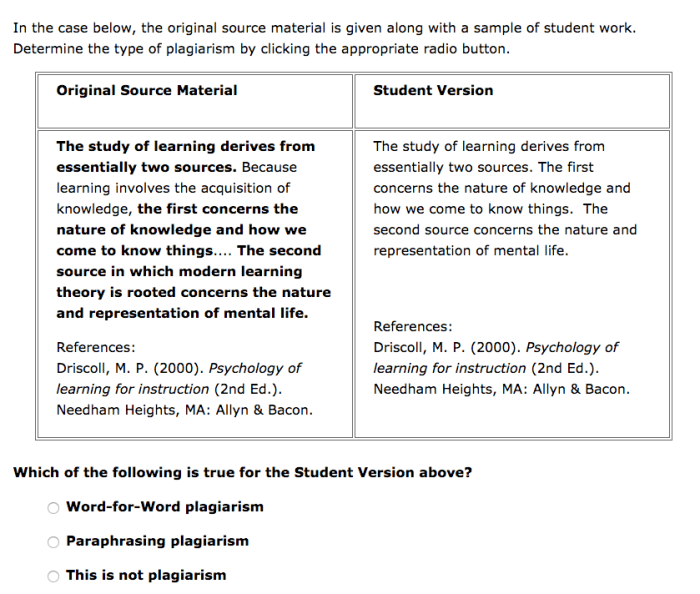The study of learning derives from a rich tapestry of disciplines, spanning the annals of time from ancient philosophers to modern cognitive scientists. This multifaceted field draws upon the insights of psychology, neuroscience, education, and anthropology, each contributing unique perspectives and methodologies to unravel the complexities of learning.
Throughout history, major milestones and key figures have shaped our understanding of learning. From Plato’s theory of Forms to Skinner’s operant conditioning, these pioneers have laid the groundwork for our current frameworks and approaches to studying learning.
Historical Evolution of the Study of Learning

The study of learning has a rich history, tracing its origins back to ancient philosophers who sought to understand the nature of knowledge and the processes by which it is acquired. Over the centuries, the field has evolved significantly, with the development of new theories, methods, and technologies that have deepened our understanding of learning.
Key Figures and Milestones
- Aristotle (384-322 BC): Proposed the concept of “associative learning,” suggesting that learning occurs through the association of stimuli and responses.
- John Locke (1632-1704): Argued that the mind is a “blank slate” at birth and that all knowledge is acquired through experience.
- Ivan Pavlov (1849-1936): Developed the concept of “classical conditioning,” demonstrating how stimuli can be associated with involuntary responses.
- B.F. Skinner (1904-1990): Developed the theory of “operant conditioning,” which focuses on the role of reinforcement and punishment in shaping behavior.
- Jean Piaget (1896-1980): Proposed the theory of “cognitive development,” suggesting that children’s cognitive abilities develop through a series of stages.
Interdisciplinary Influences on the Study of Learning

The study of learning is a highly interdisciplinary field, drawing on insights from a wide range of disciplines, including psychology, neuroscience, education, and anthropology. Each discipline brings unique perspectives and methodologies to the field, contributing to a more comprehensive understanding of learning.
Psychology
Psychology has been central to the study of learning, providing theories and methods for understanding the cognitive, emotional, and behavioral processes involved in learning.
Neuroscience
Neuroscience has provided valuable insights into the neural mechanisms underlying learning, helping us to understand how the brain processes and stores information.
Education
Education has contributed to the study of learning by developing practical applications of learning theories and methods, such as instructional design and assessment techniques.
Anthropology
Anthropology has provided insights into the cultural and social factors that influence learning, highlighting the role of social interactions and cultural practices in shaping learning experiences.
Theoretical Frameworks for Understanding Learning: The Study Of Learning Derives From

There are several major theoretical frameworks used to explain learning, each offering a distinct perspective on the processes involved. These frameworks include behaviorism, cognitivism, constructivism, and social learning theory.
Behaviorism, The study of learning derives from
Behaviorism focuses on the observable behaviors that result from learning, emphasizing the role of reinforcement and punishment in shaping behavior.
Cognitivism
Cognitivism focuses on the mental processes involved in learning, such as attention, memory, and problem-solving, and how these processes contribute to the acquisition of knowledge and skills.
Constructivism
Constructivism emphasizes the active role of learners in constructing their own understanding of the world through interactions with their environment and social experiences.
Social Learning Theory
Social learning theory focuses on the role of social interactions and observational learning in shaping behavior, highlighting the influence of models and peers on learning outcomes.
Questions Often Asked
What is the historical evolution of the study of learning?
The study of learning has evolved over centuries, from ancient philosophers to modern cognitive scientists. Key milestones include Plato’s theory of Forms, Aristotle’s emphasis on observation and experience, and Skinner’s operant conditioning.
What are the major theoretical frameworks for understanding learning?
Major theoretical frameworks include behaviorism, cognitivism, constructivism, and social learning theory. Each framework offers a distinct perspective on the processes and mechanisms involved in learning.
What are the practical applications of the study of learning?
The study of learning has practical applications in various fields, including education, training, and healthcare. Research on learning can inform best practices and improve outcomes in these areas.


